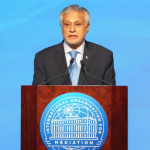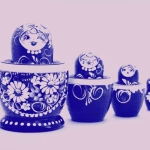Seeing couples change is one of the biggest pleasures of reality dating shows. Two strangers meet and engage in stilted small talk. Then, until they leave the show hand in hand or one of them breaks it off and begins the process anew with someone else, they relax, give each other their first kiss, and gaze at one another with increasingly sloppy eyes.
This storyline is particularly delicious on Love Island, a global franchise that lets fans be weird little flies on the wall while watching ultra-ordinary moments—contestants relaxing by the pool, playing Ping-Pong, or getting ready for bed—six days a week, in contrast to highly structured shows like The Bachelor. Yes, that requires a significant amount of time; don’t ask me how I manage it. It also implies that a relationship’s development can be observed practically instantly. You have several pairs to follow by the end of a normal season, and you pray for their survival because any success feels like proof that love exists. Some of these people are married and have children now, as I like to point out to my mother when she tells me it’s all scripted garbage.
However, on Love Island USA‘s seventh season, which concludes this Sunday on Peacock, everything has changed. The program is a sensation: with only nine episodes available, viewers watched over a billion minutes between June 6 and June 12 alone, surpassing the 2024 megahit season. This one has featured moments worthy of memes, heartwarming friendships, and captivating drama. However, it has been deficient in romance, which is somewhat crucial for a romance contest.
On Reddit, I saw someone lament, “I’m rooting for no one because there’s no actual connection.” “It seems like no one is really pining for each other,” complained another. It’s been Fake Friendship Island, Severely Emotionally Dysregulated Island, as one poster on the same thread aptly put it: Island of Situationships. Everything except Love Island, literally.
It’s true that although contestants have paired up, they haven’t really clicked. What the helly, as the islanders would say. Perhaps this cast simply didn’t mesh well; perhaps LIUSA has become too well-known and is now dominated by influencers seeking not collaboration but fame. However, I would contend that Season 7 paints a clear picture of Gen Z, a socially cautious generation that has significantly less relationship experience than its forebears and engages in notably little sex.
Although Zoomers has been around for a while, the cast is remarkably youthful. When the coronavirus pandemic struck, a few members were in high school. They were most likely at home, staring at a screen, at a time in their lives when they might have been going on a first date or crushing on someone in class. They may have watched more romances performed or promoted, including on Love Island, than they have participated in because they grew up with phones and social media.
Although one contestant claims to have texted over 1,000 naked photos, several others have stated that they have never been in a relationship. As Daniel Cox, the director of the Survey Center on American Life, once told me, “many young people believe in love and want it badly, but have a real sense of anxiety about how to go about it.” This is why this season feels like Situationship Island. Gen Z is the situationship generation. Gen Z daters are “tiptoeing around direct communication to avoid coming off as cringey or overeager,” according to a 2024 Hinge report.
That these islanders appear to be merely going through the motions, circling around romantic vulnerability but never quite closing in, is understandable. Some have vacillated for hours on end over which prospect to pursue, then wandered indecisively toward one. Their conversations are rigid and strangely superficial. (Recently, after weeks of arguing, one of the more resilient couples seemed to discuss their early years for the first time.)
Some competitors identify as “slow burners.” However, the group appears suspicious of connection rather than merely cautious about it. Islanders have been accused of “love bombing” or not doing enough romantic “exploring” when couples have gotten closer or when they appear to be in love with someone new.
We should hear hopeful lovers discussing how they will fit into each other’s everyday lives with anxious excitement by this point in the season. Rather, the remaining pairs are either gaining momentum or falling off the rails. Prior to last night’s show, two couples had made the decision to be “closed off.” Among them were Nic Vansteenberghe and Cierra Ortega, who had also taken care to clarify that they were not “boyfriend and girlfriend.”
Vansteenberghe then performed a little jig to celebrate getting back together with someone else on the same day earlier this week that Ortega was sent home after fans found out that she had previously posted a racist slur online. Taylor Williams and Clarke Carraway, who dated comparatively late in the season, were the other closed-off couple. They went home after losing an audience vote the night they were made exclusive.
Millions of people still watch Season 7 in spite of everything. I’ve heard people discussing the most recent developments in public places several times in the last week. (After Sunday, I’ll be able to walk around my city without wearing headphones because I’m afraid of giving anything away.)
Fans may be consuming everything Love Island has to offer except the love, or they may simply be hate-watching. However, I wonder if there’s more going on here, if some of the Zoomers watching can relate because they’ve had difficulty scaling someone else’s wall or because they have their own up. Perhaps they are aware of the hesitation they observe in these islanders, as evidenced by the discussions about not wanting to “move too fast” and the studied calmness.
It’s possible that viewers want to observe, from a safe distance, what happens when you do put yourself out there. This year’s two biggest fan favorites are both women who acknowledge that they have a lot of emotions. Earlier in the season, one, Huda Mustafa, fell in love; she wasn’t playing it cool and was messy and occasionally toxic.
Amaya Espinal, the other, cries a lot and squeals when she feels romantically excited. She is constantly told by men that she is too much. When she called him “babe,” one didn’t like it. (She uses that affectionate term to refer to all of her friends, which is actually all of the people in the villa.) When the competitors exchanged frank letters, another man claimed he was overcome by her interest in him. She sobbed in front of the other islanders, saying, “I’m tired of people viewing that as a negative instead of a power move.”
Espinal gained hundreds of thousands of Instagram followers overnight and currently has two million thanks to that speech, which became the season’s viral moment. A quote by Amaya Papaya with a small papaya emoji appears when you search for her on Google. Poppi, a soda brand, is even launching a new flavor under her name.
The fact that viewers are reacting to those who allow themselves to be enthusiastic, who discuss how frightening it is to fall in love, and who still pursue their dreams is not a coincidence, in my opinion. In one episode, Espinal states, “Your girl is trying to turn that anxiety into excitement, even though my heart rate is being tachycardic right now.” She’s teaching a lot of young people the ropes.












